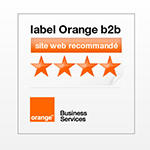McDonald’s is presently celebrating its 30th year of presence in France. But when I came back in Paris in 1978, I remember having eaten in some of the half a dozen McDonald’s restaurants opened at that time. So what happened?
The first McDonald’s in France was opened in 1972 in Créteil, near Paris, by Raymond Dayan, who had acquired the franchise from the American company. Nevertheless, in 1982, following an epic legal battle, Raymond Dayan was forced to give up McDonald’s name, while keeping his restaurants open under his own O’Kitch brand. The reason invoked by MacDonald’s company was a failure to respect corporate hygiene requirements, and McDonald’s France re-opened its first restaurant in Paris in 1988, while “officially” settled in France since 1979…
Most have forgotten (not everyone), but to justify such an incredible mess, McDonald’s France has adopted an incredibly rigid branding strategy: the company celebrates this year the opening of the first restaurant of McDonald’s France, NOT the first McDonald’s restaurant IN France. Is this sustainable? Definitely not.
Rigidity is no more an available branding strategy
Even if you are still in control of your brand, you cannot deliberately ignore anymore your customers. Branding has became a matter of interaction between them and you, products are not elements you may hide behind. Be prepared to move and to meet your customers wherever they are, the way they need it.
Transparency as a rule of thumb
Of course, brand transparency is an illusion, as understanding all the internal mechanics and implications of maintaining a brand and manufacturing products require some literacy not anybody has. But marketing transparency is a requirement. Whichever action or communication you plan, don’t allow for misunderstanding or bad communication. Our world moves at fast pace, and you would suffer backfire before even noticing.
Be prepared to fail
The importance of experimenting new ways to engage with your customers has already been underlined, largely enough. Experimentation might lead to failure. You must be prepared to fail, of course, but even more importantly, you must be prepared to answer to failure. As the web is fast to crucify a brand for unsuccessful initiatives, your marketing plan must integrate the possibility of failing and the way you will publicly acknowledge it. Today, every communication is potentially crisis communication.
The rules of branding have changed, and while adopting a rigid branding strategy and somehow faking history, McDonald’s France failed in following any of them. In France, the company has an incredibly long way to go before being more than a commodity.






Pingback: Tweets that mention McDonald’s France : Does Branding Allow Of Faking History? | Sonnez en cas d'absence -- Topsy.com
Pingback: McDonald's France : Does Branding Allow Of Faking History … « Branding
Pingback: McDonald's France : Does Branding Allow Of Faking History …